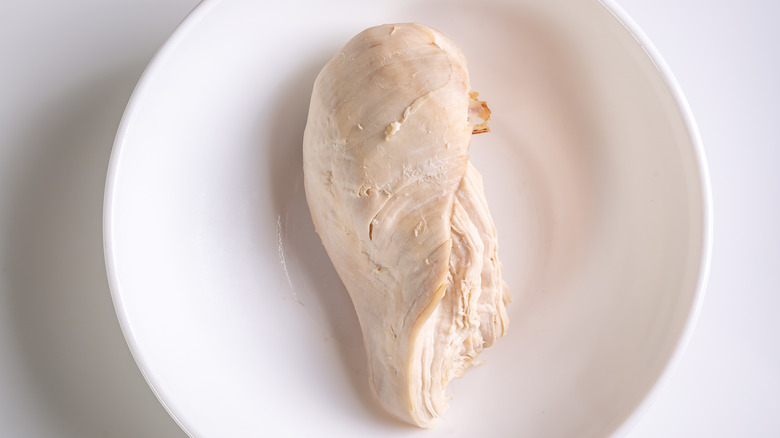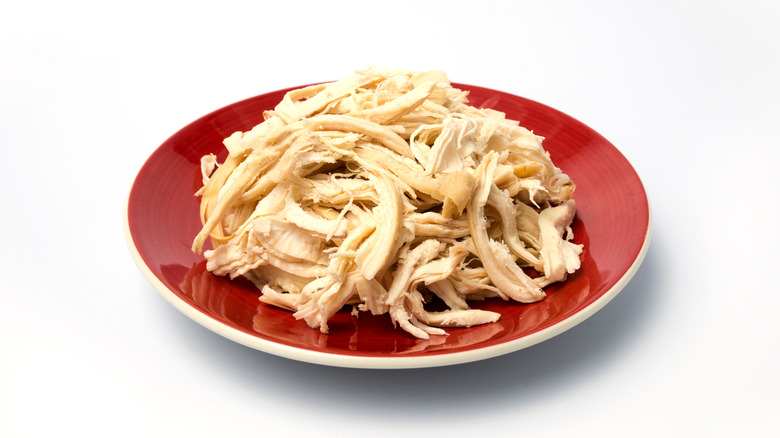The Scientific Reason Cold Chicken Sometimes Tastes Bland
Chicken is such a staple in most diets, and it's a huge source of protein. It's versatile, absorbs just about any flavor it's introduced to, and can be prepared in several different ways. Although, have you ever noticed how much more you can taste its natural flavors when it's heated versus chilled? When grabbing last night's chicken dinner leftovers out of the fridge, not only is the texture a lot tougher than when you last ate it, it has much less going on in the flavor department.
While all chicken must be exposed to heat to be fully cooked, most chicken dishes are served warm versus cold. It's likely your last instinct to use leftover chicken by adding it to another hot dish, which could risk overcooking it, and turning the meat tougher and less flavorful. Chicken salad is often a go-to, essentially coating leftover chicken in a mayonnaise-based dressing to revive its taste. Oftentimes, you taste the crunch of the celery, the sweetness of the grapes, the fattiness of the mayonnaise, or the onion and garlic seasonings, before you taste the flavor from the actual chicken. The winning question is: why does chicken's savory, natural umami flavor go away once it's heated and chilled? If you find yourself avoiding cold chicken, there might be a reason for that.
The fat firms up
Fat is flavor. According to Cook's Illustrated, when chicken is warm, its juices and fat are in liquid form, coating our taste buds more. When meat chills, its fat becomes firm, and all the moisture turns solid. Have you ever placed a leftover cooked piece of chicken in the fridge and later found a jiggly, almost translucent substance surrounding it? That is its flavor, moisture, and fat releasing and consolidating.
It's similar to the difference in flavor between chilled and melted cheese. According to Popular Science, cheese releases fat when it's melted, which is what we as humans crave and find pleasure in. Also, you'd be surprised how much texture can affect how we perceive taste. Melted cheese means fat reaches more surface area in our mouths. Cook's Illustrated also pointed out that with chilled chicken, the solidification of the juices and fat affects the chewing process, yielding a tough, stringy, unpleasant texture.
If a more flavorful chicken salad is something you're seeking, it's best to poach chicken ahead of time, store it properly in the refrigerator, and allow it to come to room temperature before incorporating it into your salad. Once at room temperature, the chicken will invite new flavors such as mayonnaise and seasonings to join the chicken's natural fats and juices.

